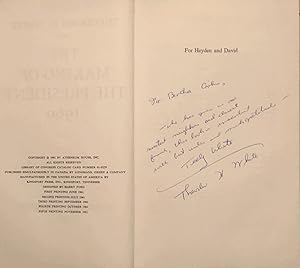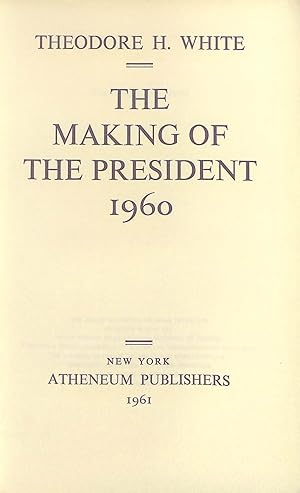



Now this winner of a 1962 Pulitzer seems brilliant but flawed, one of the stranger books I once loved. When I first read this book in high school, in conjunction with the 1968 Presidential campaign, I was impressed. I am not sure much has changed in the interim despite advances in technology. The book is concerned with the quotidian drudgery of the presidential candidate. I did appreciate White on race which features prominently, perhaps at the expense of foreign policy. There is always a tendency to look ahead, to imagine omens for the future. The concluding chapter fleshes out the opening days in Camelot, though the spectre of Asia that White sniffs is from Laos - not Vietnam. the idea that Kennedy's Catholic faith was an issue strikes me as almost quaint. 1960 was the campaign where the candidates pushed hard for the primaries to give mandate ahead of the convention. Instead I found pleasure in measuring the temperament of Nixon and Johnson, leaving the Kennedy cool for another day. It was difficult to not frame the 2016 election in the terms revealed. The election process remains such an experiment, so prone to caprice and misunderstanding. Theodore White leaves the reader with a different sort of anxiety. Walking back, I rattled off my list of those I voted for which failed to find victory. Early voting allows one to go to the polls weeks in advance yet there is something uplifting about going out on Election Day. We then walked the two blocks or so to vote. Last Tuesday my wife worked half the day and came home. Every American election summons the individual voter to weigh the past against the future.


 0 kommentar(er)
0 kommentar(er)
